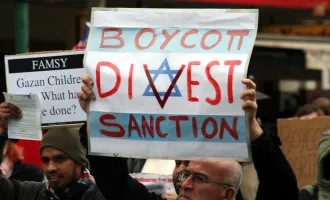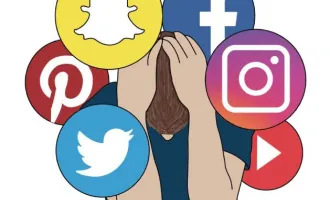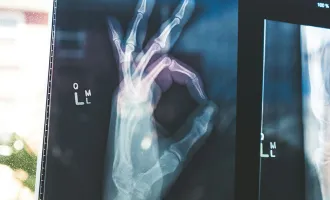Call Out Racism
Over a month ago I rode a few hours north to the quiet seclusion of Mendocino County to attend XRYSALIS, a retreat for trans and queer people of color (TQPOC). Many of us attending were seeking a place to just “be”; to enjoy one another’s company, to share our stories, to heal through honest discussion, and to exist — or at least discover how we could exist — outside of the white gaze.
From scattered locations across the Bay Area and beyond, we came together to help each other through violence and trauma and find the light of community. As one of the most vulnerable and persecuted groups in society, we were granted a chance to exhale.
While we withdrew to the woods, white supremacists, who would enjoy nothing more than to destroy the fragile home we built for ourselves, marched in Charlottesville without shame and without fear.
With torches and fiery shouts to match, they made it clear that no oxygen is to be spared for the oppressed, that the meager voice we’ve been allowed must be snuffed out completely.
They didn’t need to shuttle themselves off into the forest to find support — they knew that support came from the highest reaches of bureaucracy, the people that voted to perpetuate institutional racism, and those that stood idly by to watch the nation burn.
Though people may believe San Francisco is a happy, inclusive, liberal mecca, many San Francisco residents, and even individuals at UCSF, fall into that last category of idle bystander.
There are a few points I want to make here: not being explicitly racist isn’t the same thing as not being racist, not being racist isn’t the same thing as showing support, and true progress is only achievable with everyone’s support. We can do better.
Part 1: Self-Reflection
It’s easy to look at Nazis/white supremacists as the encompassment of modern day racism. These people don paraphernalia, use racial slurs, call for ethnic cleansing, the whole nine yards of American History X.
They show a clear target and intent to harm physically and/or emotionally. They represent the “real” racists — and by “real” I mean “explicit” – the end of the spectrum to which we compare our own thoughts and actions.
The problem is, many people don’t consider it a spectrum at all, and think if they aren’t waving swastikas they’re doing just fine.
It is these people, however, that have a more diverse arsenal of tools with which to harm the oppressed. They pass an approaching black person and their first instinct is to say they have no change.
They assume the utmost incompetence from a trained professional based on the color of their skin. They dance in sombreros on Cinco de Mayo and Bay to Breakers. They shun entire groups of people because they “just have a preference.”
They gaslight people of color and wonder why they get worked up over “nothing.” They believe Black Lives Matter has decent ideas but they just can’t support a violent organization.
They harp on how political correctness lost the election and say that there are more important issues to worry about than trans rights. They make it clear that everybody has issues so the complaining needs to stop.
They fetishize your ethnicity. They ask, “no, where are you really from?”. They walk right past the “dirty” Mexican market to the Whole Foods. They think that establishing pronouns is complete nonsense. They profit off ideas from POC without credit or compensation. They will sympathize, but they will not vote.
These aren’t hypothetical situations – they are things that happen to POC in San Francisco every single day. Micro-aggressions, political correctness, and the gigantic umbrella of “implicit” racism (which is just as harmful as explicit racism) are not a superfluous liberal manifestation.
They make people feel uncomfortable, unsafe, and unsupported. This is further amplified by the fact that those perpetuating this racism do not consider themselves racist.
Knowing this, the world feels increasingly isolated and lonely for the oppressed. Do you prefer the explicit racism of the men in hoods or the implicit racism of the men in man-buns, who appear to be more likely to help but choose not to do so?
At least three-quarters of QPOC I’ve come across have the same story: they came to San Francisco looking for community and acceptance, and instead find a city that dismisses their issues, values their body over their mind, and pushes them out of their living and community spaces through gentrification.
Many either leave or soak their trauma in alcohol, dancing around the same white gays that brought them to that point.
People are suffering, but many people in this city, and even at UCSF, refuse to face themselves for the sake of others. Students and faculty here feel that same isolation too.
I know someone who spent afternoons in the bathroom sobbing because of a hostile work environment that targeted their ethnicity. At UCSF.
I don’t intend to create another divide as to who is or isn’t an “implicit” racist. Instead I want to call those of you who have engaged in these behaviors to learn, understand, and try to be a better person.
We can all exhibit racist behavior, and we need to learn to recognize and grow from it.
To ease the tension, I’ll tell on myself a bit: when I first arrived in SF I called another person with my name “black” Aaron (but of course not in his company) to “other” him as a joke. In college I got too comfortable with my black friends and used the N word occasionally.
In high school I wore blackface for Halloween (Kirk Lazarus from the movie Tropic Thunder, but I know some part of me just wanted a reason to get away with it – I even made it my first Facebook profile picture). I’m deeply sorry for all of those things, but what I am really getting at is that I was not some paragon of virtue from birth.
I’m still learning, and so should everyone.
Being “woke” is to be in a state of growth, and to strive for greatness.
In this liberal incubator it feels like everyone is trying so hard not to be a racist that they look past their racist actions to spare their conscience.
Or they claim willful ignorance on what is and isn’t racist. For those of you scrolling past those well-written articles and think-pieces your POC friends on Facebook keep posting, try to take the time to read them — it’ll clear that up.
And when you read articles about race, even one like this, that feel like they’re targeting you, be cognizant of the bile of defensiveness bubbling up from within you and grab a hold of it. Recognize that you feel it, and think about why.
Consider what you’re being asked to do, and how much that change will affect your life versus the lives of others. Ninety-five percent of the time, it will be a small effort from you that benefits a wide swath of people.
Hesitate more. It was wise advice as a child and is still relevant now: think before you speak.
Part 2: Action
For those of you who have read this far without identifying with any severe racism missteps, that’s great! You’ve reached the bare minimum – not oppressing the oppressed.
That’s not enough, however. Look around you, the oppressed are still oppressed! We all appreciate that you aren’t picking up a bat yourself, but there’s work to be done.
If you don’t happen to be a minority, the next step is realizing that you have privilege, power, and a voice louder than many other groups in society.
People are more likely to grant you a seat at the table by default, and you’re less likely to lose that seat if you speak out.
In just the past month, trans activist-of-color and model Munroe Bergdorf and black ESPN co-host Jemele Hill both had their livelihoods put on the line for daring to call out racism in America, being called “intolerant,” “political,” and even racist themselves (I chose the nice adjectives, of course).
Bergdorf lost her job at L’Oreal and Hill was given a firm denouncement by her parent company while being forced to give an apology, likely the only thing sparing her firing.
Football players knelt on thin ice, risking their jobs and reputations just for believing that police should stop killing them.
Meanwhile, a person that helped legitimize the white supremacist actions of our president, Sean Spicer, enjoyed a friendly self-deprecating guffaw for his actions at the Emmys and an invitation to speak at Harvard.
We cannot allow POC to do the work on their own. It’s impossible. They can support one another, attempt to build something on their own and self-sustain, but that doesn’t change where the majority of the resources are allocated or the laws on the books.
They don’t have the power in society, and a large fraction of those in power will not listen to them. Most shoulder enough of a burden on a daily basis — they can’t be expected to speak out for their existence alone or educate every white person that refuses to look up the tons of resources available.
This means accepting that politics is not just a nebulous topic of conversation that you can extricate from your life. Politics is actually something that affects specific groups of people for their entire lives.
The political history of this country is why we have institutionalized racism today, why the pillars of our society continue to discriminate and deny power from people of color. It is why Mexican families are being targeted and separated, why black people are unlawfully shot and killed every day, why Muslim immigrants are restricted access to this country while their countries are destroyed by war.
To be an ally is to actually “do” something – to call out racism when it happens and push towards institutional change. When a family member makes an off-color comment, speak up.
If you see faculty lacking in cultural competence, speak to the administration. Join in protests. Call your state politicians about harmful policies. Buy from local POC-owned business. Donate to charities that support (trans and queer) people of color. Support celebrations of culture.
Advocate for increased faculty diversity. Ask your friends how they’re doing. Take part in discussions on race and diversity.
That final task is one I see time and time again as an issue at UCSF. Who comes to most of these discussions on race and diversity? Majority POC, even when flyers explicitly state that certain events are for everyone.
Many people see “diversity” and think that’s just for the black and Latinx students — some white friends here have even said as much. People here will walk around with a safety pin but won’t go to these discussions.
What makes the oppressed actually feel safer, a metal pin or showing up to talk about real change?
Diversity encompasses so many things – sexuality, socioeconomic status, disability, gender, ethnicity, education, and more. Let’s not reduce the meaning to people that are beige or darker. Furthermore, being an ally doesn’t mean being white.
No one person is a Megazord of all of the most oppressed intersections of society, and we can all be allies to one another in some respect.
The purpose of diversity discussions is to take a critical lens to how certain groups of people are navigate society and to learn how we can better support those people. Please make an effort to attend and be there for your peers.
Again, it is only with the allyship of everyone that we will make progress: to have the oppressed lead and the privileged follow, to redistribute the power that has bound our society to destructive cycles.
Remember that we are all striving for greatness, so work to accept your faults if you have unknowingly exhibited racism, and call out racism of those around you.
Do better to make this city and this university a home for everyone.


